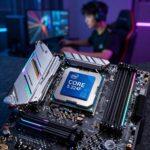In a turn of events that has sparked relief and renewed optimism among gamers, AMD has reversed its earlier announcement regarding the support status of its RDNA 1 and RDNA 2 graphics architectures. Initially declared to be moved into a maintenance-only mode with limited driver updates, AMD’s latest statement affirms continued game support, optimizations, and security updates for these widely used GPUs.
Background: The Controversy Over RDNA Support
Last month, AMD caused alarm when their driver release notes suggested that new game support would be exclusive to the latest Radeon RX 7000 and 9000 series GPUs (RDNA 3 and RDNA 4). RDNA 1 (RX 5000 series) and RDNA 2 (RX 6000 series) GPUs appeared to be relegated to “maintenance mode,” a term implying only critical security fixes and bug patches would be issued going forward.
This was deeply concerning to the gaming community, as it implied future new game optimizations and features would no longer be available for a vast installed base of machines, including popular gaming handhelds and consoles reliant on RDNA 2 technology. The notion that AMD would stop active driver development for still highly capable and relatively recent GPUs felt premature and unacceptable to many users.
Initial Responses and Community Backlash
Tech media outlets and users quickly sought clarification from AMD. The company’s follow-up response confirmed the maintenance mode stance, emphasizing prioritization of driver updates for RDNA 3 and 4 GPUs and limiting RDNA 1 and 2 updates to security and critical bug fixes.
This sparked widespread backlash, with critics noting the inconsistency with AMD’s past support history and putting the company under pressure to reconsider. Rumors swirled about AMD potentially abandoning optimization for RDNA 1/2 despite continued usage in many current gaming systems.
AMD’s Reversal and Clarification
In response to the outcry, AMD recently published a detailed clarification titled “Continued Support for Every Radeon Gamer”. They now confirm that RDNA 1 and RDNA 2 GPUs will indeed continue to receive new game optimizations, security patches, and bug fixes. Rather than maintenance mode, these GPUs will be supported through a dedicated, stable driver branch specially optimized over years of tuning.
This dual-driver approach allows AMD’s engineers to accelerate innovation and feature rollouts for RDNA 3 and 4 GPUs while ensuring RDNA 1 and 2 users enjoy a consistent, stable gaming experience. AMD emphasized their commitment to all Radeon gamers, regardless of GPU generation, reaffirming a company-wide pledge to reliability and performance.
Implications for Gamers and the Industry
The clarification effectively backtracks AMD’s earlier plans, balancing the need to push forward technologically with the responsibility to support existing hardware. However, the new approach suggests optimizations for older GPUs may not arrive as promptly as they do for the newest generations, potentially leading to delayed day-one game support in some cases.
AMD’s move is particularly significant for gaming handhelds, consoles, and laptops that rely on RDNA 2 technology, ensuring these devices will remain viable for current and upcoming game titles. While AMD’s bifurcated driver strategy is somewhat unconventional compared to competitors like NVIDIA, it reflects a pragmatic compromise to manage driver development resources.
Conclusion
AMD’s initial announcement to place RDNA 1 and RDNA 2 GPUs into maintenance mode ignited widespread concern about future game support. Following intense feedback from gamers and media, the company has now clarified that these GPUs will continue to receive game optimizations and critical updates through a dedicated stable driver branch.
This episode highlights the power of community advocacy in influencing corporate decisions and AMD’s willingness to course-correct when faced with consumer dissatisfaction. While some uncertainty remains about the speed and extent of future updates for older architectures, Radeon users can be reassured that their RDNA 1 and 2 GPUs will remain supported for new games and security needs in the foreseeable future.






